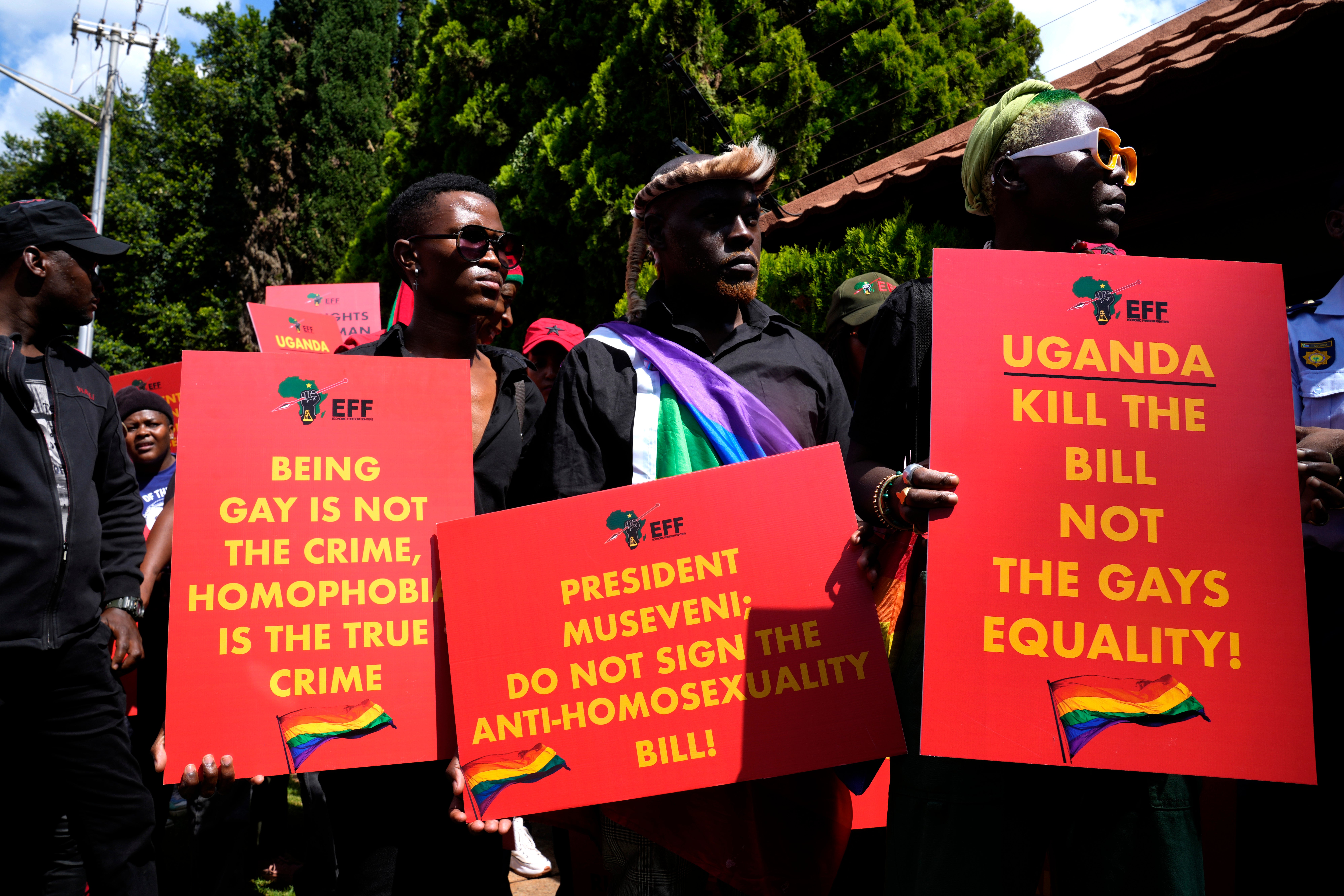
Uganda's president Yoweri Museveni has signed into law one of the harshest anti-LGBT+ bills in the world, which includes the death penalty in some cases, prompting public outcry and condemnation by rights activists.
Same-sex relations were already illegal in Uganda under a colonial-era law that claimed homosexual relations to be "against the order of nature".
The signed version of the bill doesn't criminalise those who identify as members of the LGBT+ community – a key concern for campaigners who called the previous draft an egregious attack on human rights.
However, the “Anti-Homosexuality Act 2023’ still imposes the death penalty for "aggravated homosexuality", defined as cases of gay sexual relations involving people with HIV as well as with minors and other categories of vulnerable people.
A suspect convicted of "attempted aggravated homosexuality" can be imprisoned for up to 14 years, while "promoting" homosexuality is criminalised with a 20-year prison sentence.
Anita Among, the speaker of the parliament, said in a statement that the president had "answered the cries of our people" in signing the bill.
"With a lot of humility, I thank my colleagues the members of parliament for withstanding all the pressure from bullies and doomsday conspiracy theorists in the interest of our country," the statement said.
The president had returned the bill to the national assembly in April asking for changes to differentiate between those identifying as members of LGBT+ community and actually engaging in homosexual acts. The amended version of the bill was passed by the assembly earlier in May.
The law signed by Mr Museveni on Monday was severely criticised by queer activists and rights organisations, which warned of a humanitarian and health crisis.

The leaders of the UN AIDS program, the US President's Emergency Plan for AIDS Relief and the Global Fund in a joint statement said they "are deeply concerned about the harmful impact" of the legislation on public health and the HIV response.
"Uganda's progress on its HIV response is now in grave jeopardy," the statement said. The law “will obstruct health education and the outreach that can help end AIDS as a public health threat”.
Clare Byarugaba, a Ugandan rights activist, said the president "legalised state-sponsored homophobia and transphobia". "It's a very dark and sad day for the LGBTIQ community, our allies and all of Uganda."
The LGBT+ community in Uganda said they are scared for their lives, with reports of some closing down social media accounts and fleeing their homes for safe houses.
“This vile, deadly legislation will do nothing to improve Uganda or the lives of Ugandans,” said Arthur Kayima, a queer Ugandan human rights activist.
“Rather than focusing on the real issues Uganda is facing - poverty, poor infrastructure, the economy, domestic violence - Museveni would rather cause a distraction by attacking our fundamental right to exist.
“I am afraid for my community. How many of us will be jailed, or beaten, or further chased into the shadows of society as a result of this legislation? How many will die?”
Activists in Uganda have vowed to challenge the law in court, which was signed by the president with a golden pen. A less restrictive 2014 anti-LGBT+ law was struck down by a domestic court on procedural grounds after Western governments imposed visa restrictions and suspended aid.
The East African nation receives billions of dollars each year and is likely to face another round of sanctions.
Washington last month said it was assessing the implications of the new legislation for actviities in Uganda under its flagship AIDS program. The bill was also condemned by the EU, UN and tech giants such as Google.
Mike Podmore, the director of UK-based charity STOPAIDS, said the law is a public health threat that will decimate HIV response.
"It will criminalise the provision of key services and further entrench the deadly stigma that sadly still surrounds HIV.
"We must do everything to persuade Uganda against this regressive step that could trigger a domino effect amongst other countries in the region to further backslide on LGBT+ rights, including Kenya, Ghana and Burundi.
He added that the UK government has a particular responsibility given it was the British Empire that first introduced laws criminalising gay people in Uganda.
"... as does the United States, from which evangelical fundamentalist groups have funded this hateful agenda."







